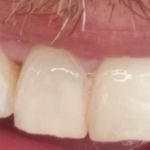How to Prevent Tooth Diseases in Elderly Patients – Essential Oral Care Tips
As we age, our dental care needs evolve, and elderly patients face unique challenges in maintaining their oral health. Preventing tooth diseases in elderly patients is crucial to preserving their overall health, comfort, and quality of life. In this article, we’ll discuss the most common dental issues faced by seniors, how to prevent these diseases, and the best practices for keeping teeth healthy in later years.
1. Common Tooth Diseases in Elderly Patients
Tooth diseases in elderly patients are common, but they can often be prevented or managed with proper care. Some of the most prevalent dental issues in seniors include:
- Tooth Decay: As we age, our teeth become more susceptible to decay due to factors like dry mouth (xerostomia) and the natural wearing down of enamel.
- Gum Disease: Periodontal disease, including gingivitis and periodontitis, is widespread among older adults. It occurs when bacteria build up on teeth and gums, causing inflammation and potential tooth loss if untreated.
- Tooth Loss: Loss of teeth can occur due to decay, gum disease, or other factors, which often leads to challenges in chewing, speaking, and overall comfort.
- Oral Cancer: Older adults are at higher risk for oral cancers, particularly those who smoke or drink alcohol regularly.
2. How to Prevent Tooth Diseases in Elderly Patients
Preventing tooth diseases in elderly patients requires consistent care and attention to oral hygiene. Here are the most effective ways to keep teeth and gums healthy as you age:
- Brush Regularly with Fluoride Toothpaste: Brushing twice a day with fluoride toothpaste is essential for preventing tooth decay and gum disease. Use a soft-bristled toothbrush to avoid damaging sensitive gums and enamel.
- Floss Daily: Flossing is critical for removing plaque and food particles from between the teeth, which brushing alone cannot do. Regular flossing helps prevent gum disease and tooth decay.
- Stay Hydrated: Dry mouth is a common issue in the elderly and can lead to tooth decay. Drinking plenty of water throughout the day helps keep the mouth moist and washes away food particles and bacteria.
- Regular Dental Checkups: Regular visits to the dentist (at least every six months) are crucial for early detection of dental issues, such as cavities, gum disease, and oral cancer. Your dentist can provide professional cleanings and advice tailored to the needs of seniors.
- Use a Mouth Rinse: Antimicrobial mouthwashes can help reduce plaque buildup, freshen breath, and prevent gum disease, especially for seniors who may have difficulty brushing properly.
3. The Importance of Good Nutrition for Oral Health in Seniors
Good nutrition plays a key role in preventing tooth diseases in elderly patients. Seniors should focus on a balanced diet rich in vitamins and minerals, which helps maintain healthy teeth and gums. Some specific dietary tips include:
- Consume Calcium-Rich Foods: Calcium is essential for strong teeth and bones. Include dairy products, leafy greens, and fortified foods in your diet to support dental health.
- Limit Sugary Snacks: Sugary foods and beverages can promote tooth decay by feeding harmful bacteria in the mouth. Limit sweets and opt for healthier snacks like nuts, fruits, and vegetables.
- Stay Hydrated: As mentioned, staying hydrated helps combat dry mouth and supports overall oral health. Water is the best choice for keeping your mouth moist and healthy.
4. Real-Life Case: Preventing Tooth Diseases in an Elderly Patient
Take the case of Margaret, a 72-year-old woman who was struggling with gum disease and tooth sensitivity. She had been neglecting her oral care routine, and her gums were showing signs of inflammation. After visiting her dentist, she was given a personalized oral care plan, which included daily flossing, a fluoride mouthwash, and a balanced diet with calcium-rich foods. With regular checkups and consistent care, Margaret successfully improved her oral health, reducing gum inflammation and preventing further tooth loss. Margaret’s case is an example of how maintaining good dental habits and seeking professional care can help prevent tooth diseases in elderly patients.
5. Special Considerations for Elderly Patients with Dentures
Many elderly individuals wear dentures, and while dentures are an excellent solution for missing teeth, they require special care to prevent oral diseases. Here are some tips for maintaining good oral hygiene with dentures:
- Clean Dentures Regularly: Clean your dentures daily with a soft brush and denture cleaner. This helps remove food particles, bacteria, and plaque buildup.
- Remove Dentures at Night: To allow your gums to rest and reduce the risk of irritation or infection, remove your dentures at night and clean them thoroughly.
- Check for Fit: Regularly visit your dentist to ensure that your dentures fit properly. Ill-fitting dentures can cause irritation and lead to sores or infections in the mouth.
6. Conclusion: Keep Your Smile Healthy in Your Golden Years
Preventing tooth diseases in elderly patients is crucial to maintaining both oral health and overall well-being. By adopting good oral hygiene practices, maintaining a healthy diet, and visiting your dentist regularly, you can help ensure that your smile stays bright and healthy for years to come. If you or a loved one is looking for more information on elderly dental care or products that support oral health, visit Dentistry Toothtruth for expert advice and a wide range of products designed for seniors.







 Maui Whitening Orlando4.0 (32 review)
Maui Whitening Orlando4.0 (32 review) Bloomington Southside Dental Care3.0 (26 review)
Bloomington Southside Dental Care3.0 (26 review) Christiana Dental Center4.0 (650 review)
Christiana Dental Center4.0 (650 review) Carolina Dental Arts - New Bern Ave4.0 (152 review)
Carolina Dental Arts - New Bern Ave4.0 (152 review) Equitas Health Short North Medical Center3.0 (96 review)
Equitas Health Short North Medical Center3.0 (96 review) Prosthodontics of Madison - Kendra Schaefer, DMD & Christine Roenitz, DMD4.0 (25 review)
Prosthodontics of Madison - Kendra Schaefer, DMD & Christine Roenitz, DMD4.0 (25 review) The Importance of Oral Health Education During Pregnancy for a Healthy Pregnancy
The Importance of Oral Health Education During Pregnancy for a Healthy Pregnancy Best Tips for Brushing Your Teeth Properly for Healthy Gums: Essential Techniques for Oral Health
Best Tips for Brushing Your Teeth Properly for Healthy Gums: Essential Techniques for Oral Health Why Skipping Dental Checkups Can Lead to Bigger Oral Health Problems
Why Skipping Dental Checkups Can Lead to Bigger Oral Health Problems Advantages of Porcelain Dental Restorations
Advantages of Porcelain Dental Restorations How Can Diabetes Cause Tooth and Gum Problems? Preventing and Managing Oral Health Issues
How Can Diabetes Cause Tooth and Gum Problems? Preventing and Managing Oral Health Issues Healthy Habits for Promoting Good Oral Health and Hygiene: Tips for a Healthy Smile
Healthy Habits for Promoting Good Oral Health and Hygiene: Tips for a Healthy Smile